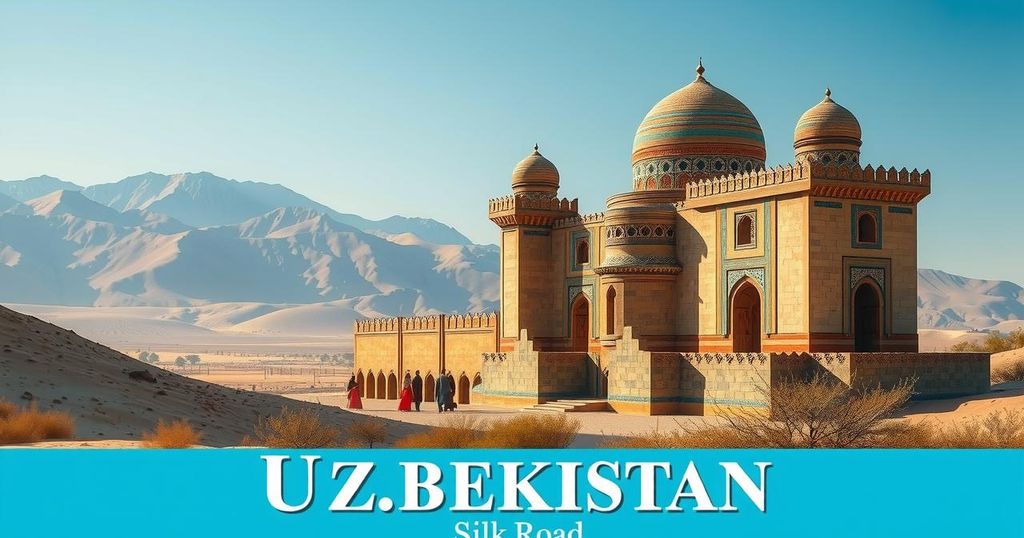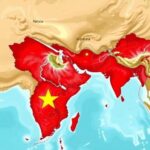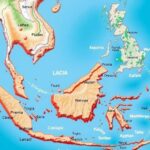Politics
AIRASIA X, ASIA, BERNAMA, BERNAMA TV, CHINA, CIS, COMMONWEALTH, COMMONWEALTH OF INDEPENDENT STATES, EUROPE, EUROPE/ASIA, EXPORTS, FOREIGN INVESTMENT, GA, GADOEV, INTERNATIONAL TRADE, KA, KUALA LUMPUR, MALAYSIA, MEXICO, NORTH AMERICA, PETRONAS, RUSSIA, SAMARKAND, STATES, SUPPLY CHAIN, TASHKENT, TRADE, UZBEKISTAN
Nia Simpson
Exploiting Uzbekistan’s Strategic Location for Malaysian Trade and Tourism Opportunities
Malaysia is urged to tap into Uzbekistan’s strategic position for market access into Europe and CIS through GSP+. Notably, the upcoming AirAsia flights to Tashkent aim to enhance trade and tourism, particularly in halal tourism opportunities, presenting significant growth potential for Malaysian investors in Uzbekistan.
In Kuala Lumpur, officials highlight opportunities for Malaysian investors to leverage Uzbekistan’s strategic location to penetrate European and CIS markets, as well as China. Uzbekistan’s Ambassador to Malaysia, Karomiddin Gadoev, suggests that Malaysian food producers and palm oil manufacturers should utilize this connection. The anticipated flights by AirAsia X to Tashkent, set to commence in September, would further enhance these economic ties.
Ambassador Gadoev emphasizes the benefits under Uzbekistan’s Generalised System of Preferences Plus (GSP+), which offers duty-free access for 6,243 eligible goods to the EU market, comprising 559 million consumers. This initiative aims to strengthen bilateral economic relations between Uzbekistan and Malaysia, particularly in sectors such as oil and gas, with Petronas being invited for investments.
Additionally, Uzbekistan’s market, with a population of 35.6 million, presents a strategic base for Malaysian goods to access the wider CIS market, including Russia. The GSP framework provides an advantageous trade privilege for developing countries, which includes additional criteria for GSP+ that focus on human rights and environmental standards. Gadoev stressed that this framework increases competitiveness by abolishing import taxes, benefiting investors significantly compared to existing tariffs from developed nations.
The Uzbek government extends appealing incentives for foreign investments, including tax exemptions based on the scale of investment, particularly for investments exceeding US$15 million. Gadoev explained that businesses in designated free economic zones can enjoy substantial benefits, including zero taxation on income and access to essential infrastructure.
Discussions about establishing a joint special industrial zone between Uzbekistan and Malaysia have taken place, initiated by dialogues between Prime Minister Datuk Seri Anwar Ibrahim and the President of Uzbekistan. With total trade between Malaysia and Uzbekistan reaching RM369.8 million, Uzbekistan stands as Malaysia’s key trade partner in Central Asia.
Uzbekistan also sees potential for developing halal tourism with Malaysia and Indonesia, as the region’s population of nearly 700 million is a significant market. Gadoev articulated a vision for collaborations focusing on halal tourism and religious pilgrimages to sacred sites in Uzbekistan, particularly promoting umrah plus packages for Malaysian pilgrims wishing to stay in Uzbekistan post-pilgrimage.
AirAsia X’s impending flights from Kuala Lumpur to Tashkent are anticipated to be a catalyst for tourism growth, potentially establishing Uzbekistan as a central hub for travel between Asia, Asean nations, and CIS countries while linking to Europe. Gadoev shared insights from a recent meeting with AirAsia executives regarding ticket sales and the operational schedule commencing in September, which aims to include Samarkand, an important cultural and spiritual site along the historical Silk Route.
In conclusion, the strategic collaboration between Malaysia and Uzbekistan offers significant opportunities for trade and tourism. Malaysian businesses are encouraged to utilize the favorable GSP+ trade framework to access European markets, benefiting from substantial investment incentives. Additionally, the establishment of AirAsia flights is expected to enhance tourism, solidifying Uzbekistan’s position as a vital hub connecting Asia and Europe, with a particular emphasis on halal tourism initiatives.
Original Source: thesun.my








Post Comment